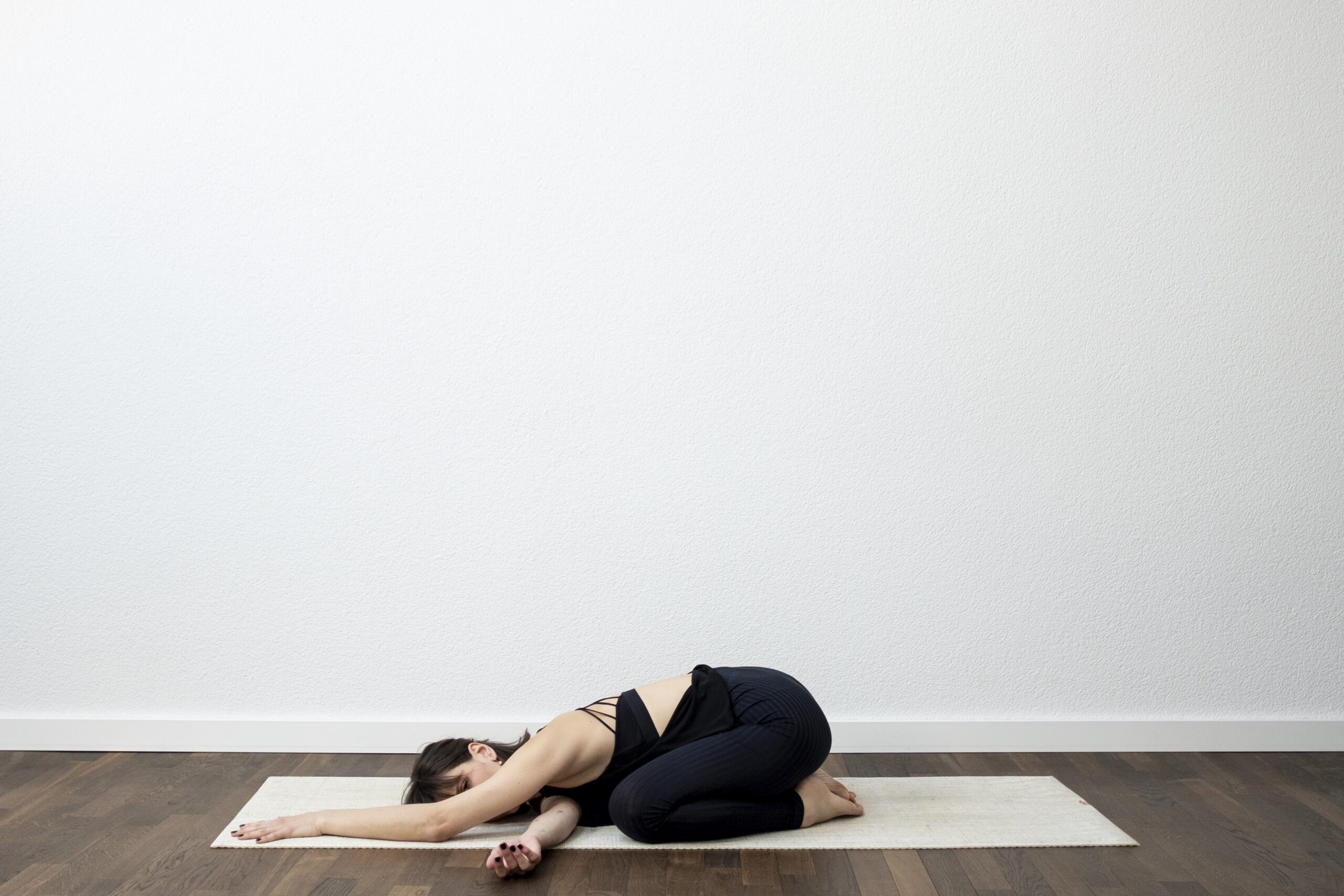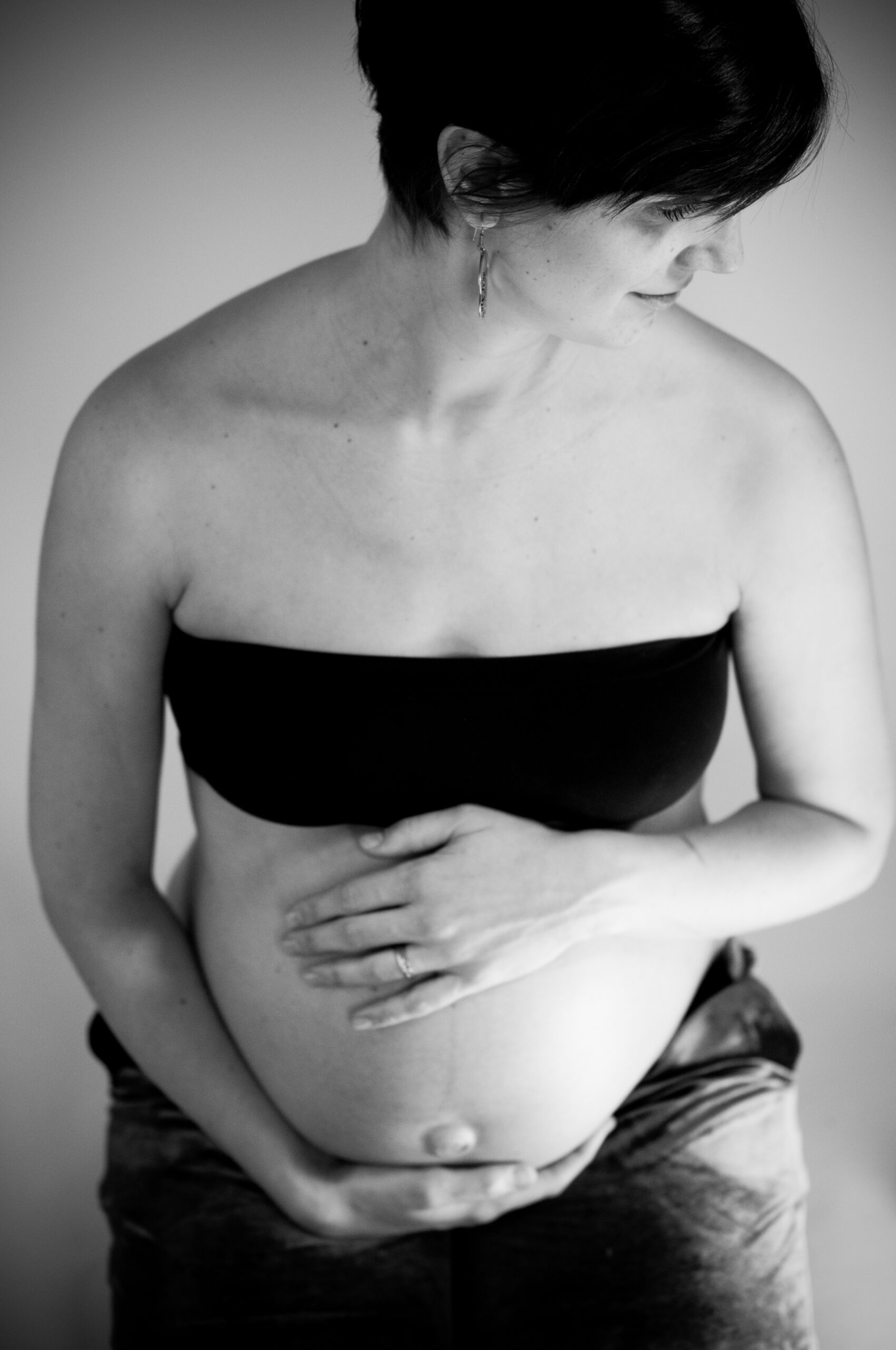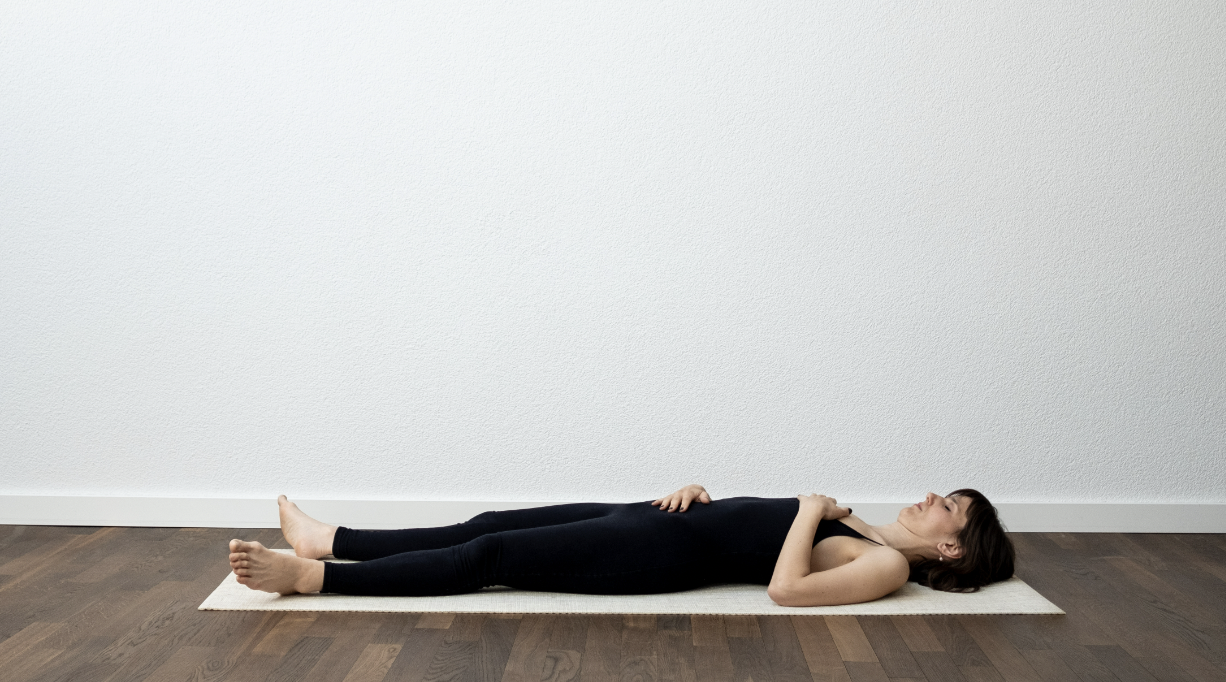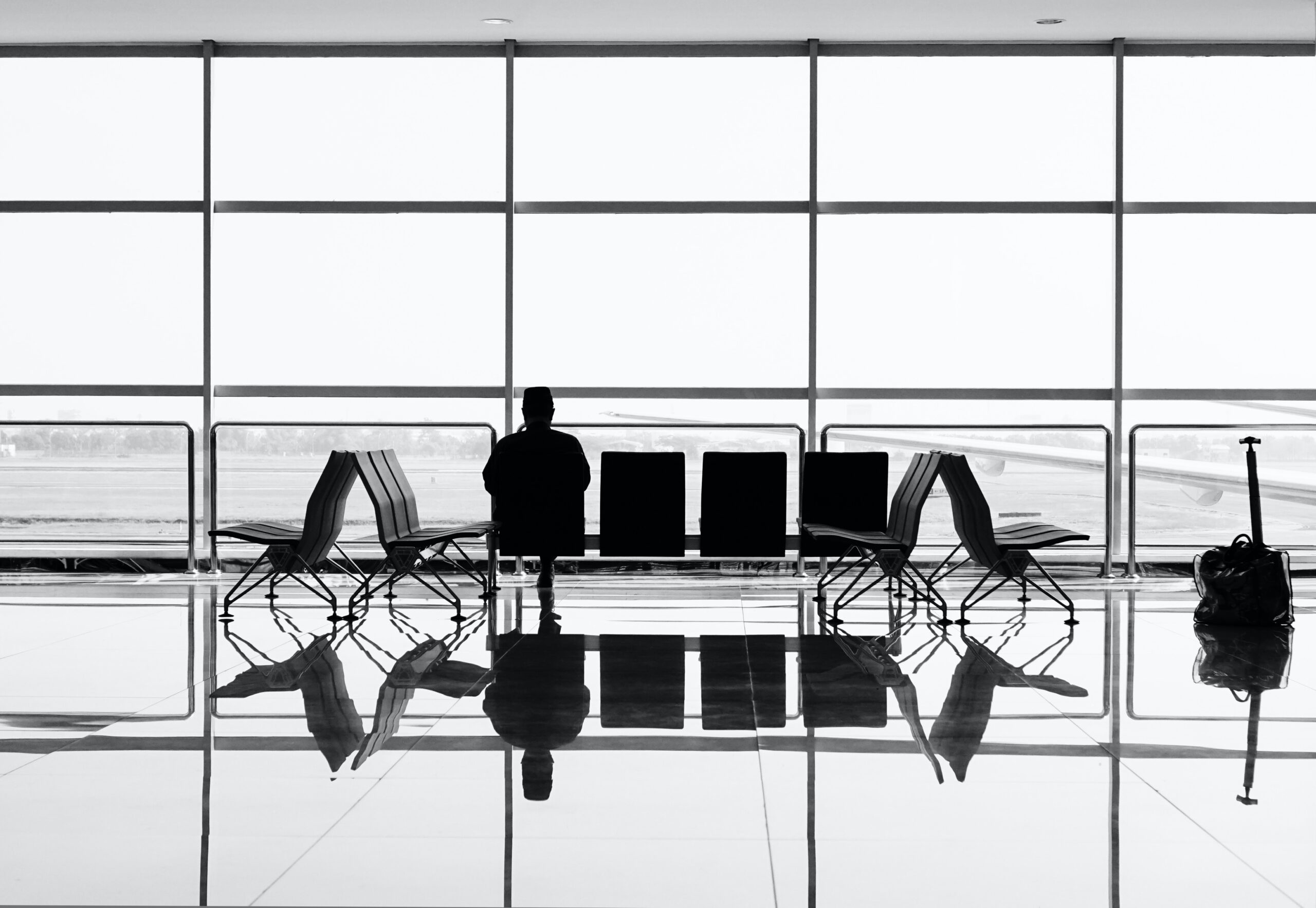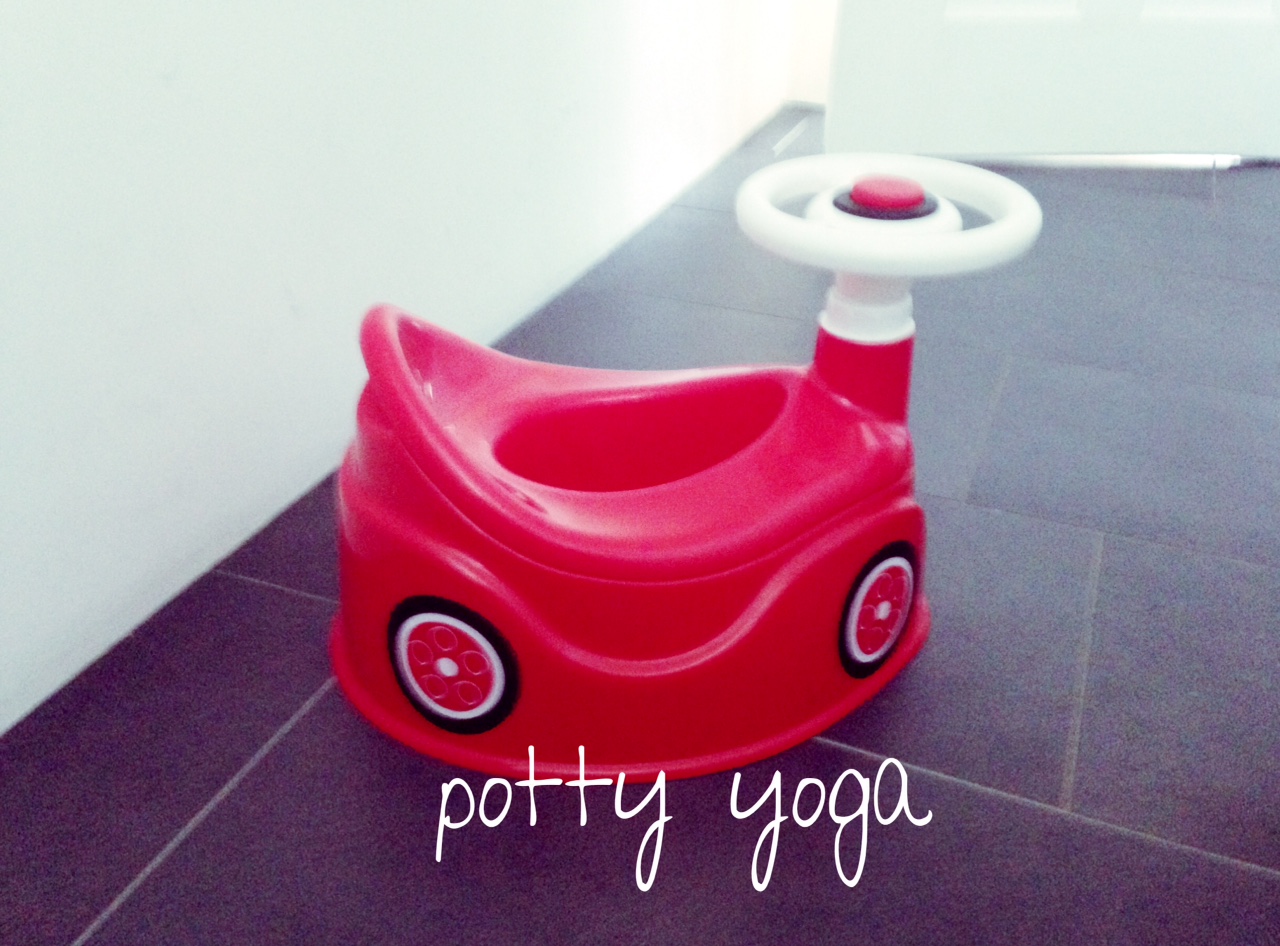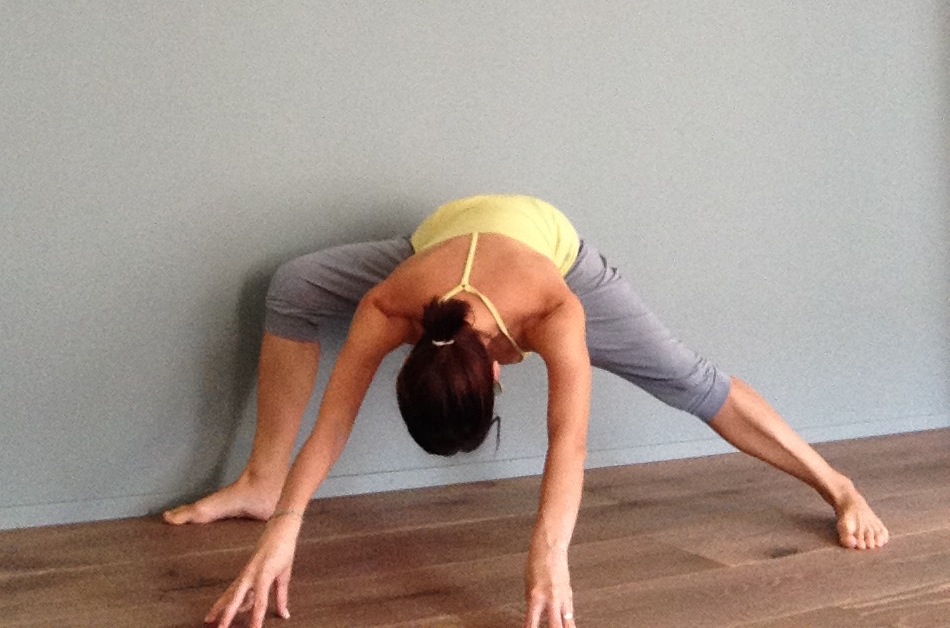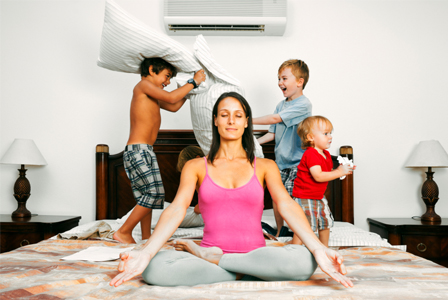About seven years ago, I decided to take the leap and become a full time yoga teacher. I was single at the time and living alone in a city as expensive as Zurich. Even though I lived simply in a cheap studio apartment and didn't need much, I was often worrying about money. Every coffee I bought, every time I allowed myself to eat out, I couldn't help feeling a cold weight of fear on my chest.
Schwangerschaftswoche 34, ein Gespräch mit meiner Hebamme. Eine alte Sorge von mir, dass meine Beckenboden-Muskulatur vom vielen Yoga zu straff sein könnte. Immer wieder hört frau, eine Geburt bedeutet Loslassen, Weichwerden auf allen Ebenen, sich Öffnen wie eine Lotusblüte.
Bei dieser Rhetorik bin ich hin- und hergerissen. Ich gebe gerne zu, dass es mir nicht immer leicht fällt, den Schutzschild abzulegen und weich zu werden. Das überrascht nicht. Der Druck weiterhin zu funktionieren, kommt wohl bei uns allen von Aussen wie auch von Innen. Kann es sein, dass deshalb in den meisten Schwangerschaftsyoga-Klassen das Loslassen und Weichspülen im Vordergrund steht?
Selling bliss has become a profitable line of business. A lot of yoga teachers make a living like that: “Come to yoga and feel the bliss of inhabiting your body, of being totally relaxed, of feeling more lithe and bendy, feel how everything looks, feels and tastes better!” And these are just a few of the marketing slogans.
Midwives, doulas, everyone who works with pregnant women will tell you that two weeks before the baby is due you should start your maternity leave. Cancel all your appointments, stop working, stop making plans. Make space. This includes space to connect with the little one and making space for it to come through you and into this world. The belief is that if your mental and physical space is too cluttered, the baby won't come. Or the birth will be rocky. Or you won't feel ready.
All the way to the gate I cried. In the middle of the homeland security madness, someone had stopped to think about motherhood. Someone had taken a moment and had seen behind the passport number.
A kindness shown in a place that usually has no room for soft spots. I think I have never seen that happen before.
The only child
I'm an only child. About four months from now, my only child will no longer be one. Sometimes I think I was open to having a second child for the wrong reason. I was afraid my son would feel as lonely as I often have in a silent house, with “only” two adults around.
My parents were often home and there for me. I seldom felt abandoned. But adults don't make noise. With parents you don't learn how to be teased and not take it too personally. You don't learn rough-and-tumble play. You become an adult sooner than you'd like.
I didn't want that for my son.
Sitting alone
A few weeks ago I was in Düsseldorf for a yin teacher training. When I arrived the airbnb apartment wasn't quite ready so I headed out again to find some food. I was waiting for my takeout dinner at one of the outdoor tables of the Vietnamese restaurant around the corner, when I became painfully aware that I was the only one sitting alone.
I don't know many people who like sitting alone at a restaurant. For some reason dining alone is a situation we want to avoid. It seems to be the prime stigma of loneliness, indicating your inability to surround yourself with people. As if this was clearly a deficit.
So what do we do, when we are forced to sit alone? We pull out our phone, our laptop or the paper and assume an air of consumed busyness and concentration. For me, I want to avoid the fear and guilt I associate with feeling left out. That first night in Düsseldorf, with no wifi and no book on me, I had to face the demons.
The stigma of the outsider
One of my personal demons, I think, is the stigma of the only child. The one who is always slightly precocious because she spent most of her formative years around adults. The one who doesn't know how to behave around people her own age because she had no siblings to practice bickering and pranking with. So she ended up not fitting in as a teenager. For years, she entered every social situation watching closely and trying to pick up cues for how to behave.
I remember feeling ashamed for being an outsider. Maybe that's not even how it was. But most of the time that's how I felt. The situation of sitting alone at a restaurant stirs up these old emotions from the inner child, even at age thirty-five.
Sitting around a table is the way most families come together, hopefully at least once a day. When we sit at a table alone, while others are enjoying company, we feel left out. It triggers the natural child-like fear of being alone. As a child, avoiding abandonment is crucial for survival. In the early years of our life, we couldn't thrive without our parents' care. And it's a good thing that this information has been embedded in our DNA.
The desire to feel included
Only child or not, we're all afraid of being alone. And yet, it is such a crucial human experience to eventually face the fear. Allowing the demons to rise also gives us the opportunity to name this fear for what it is: the desire to feel included and loved.
I'm all grown up known. A pregnant woman of thirty-five. And I still feel like twelve when I'm sitting alone without my armor of book and smart phone.
The only difference is that today I'm aware of our deep-seated human fears and longings. I try to activate my inner parent and tell the inner child that this is just my need to feel included popping up again. Nothing to be ashamed of, but also not a need that can always be met.
Our own resource for love
Nor should it always be met. If we were always engaged socially, would we ever have time to make observations such as this one? Would we ever become self-sufficient adults? Would we ever learn to be our own resource for love and support without relying solely on others for that? I think that's what growing up actually means. Becoming the inner parent to the inner child.
If all else fails I remind myself that – only child or not – the need to feel accepted and involved is one that all human beings share. Know that, with that wish, you are never alone.
Teaching yoga and selling honesty
Six months ago, I began writing a book about yoga, addiction and recovery. Since then I have been interviewing people in the international yoga world on the subject. I was thrilled when celebrity yoga teacher, author, meditation teacher and former tobacco and marijuana addict Francesca* agreed to answer some questions from me by email.
*not her real name
Francesca attributes her sobriety to the power of mindfulness and the process of becoming aware of one's own psychological make up. (The term sobriety originally denotes abstinence from alcohol, but is now loosely used to describe the recovery from substance abuse in general). Today, Francesca champions the self-healing effect yoga can have, which makes her a perfect fit for my book.
In recent years Francesca has given several interviews about her recovery from tobacco and marijuana addiction. But when I send my questions to her she tells me she can only answer four of them as she is extremely busy. She makes it clear that she wants final say on what will be printed. I feel like my hands are tied before I have even written the first line.
From yoga teacher to modern heroine
Francesca started out as a yoga teacher in the late nineties when, according to her, there were only three major studios in New York. (I assume she means only three with a strong reputation). Later on she co-owned a big studio in Manhattan for twelve years.
Over the last few years she has made a transition that most New York based yoga teachers would die for. Now she is and does so many things that I have trouble wrapping my head around them. She is a producer for an online meditation platform, business owner, mentor, online teacher and public speaker, as well as being a mother and an author.
Francesca is artistic, eloquent and graceful. It seems like there is nothing she can't do. She's a modern heroine. As I watch her videos and listen to her talks, I am struck by her perceptiveness and honesty. Her way of sharing is personal. She speaks like she's one of us.
Her answers to my questions have a different ring to them. She is concise and no fuss. But I get the feeling of being held at arm's length. And I wonder why.
Reconciling mindfulness and escape
When she became a yoga teacher, Francesca had already been smoking marijuana and tobacco for years. She says she used to smoke to escape, to hide, to celebrate, to be sad, to handle hard moments. It was, like so many addictions are, an attempt to run away. But Francesca was lucky enough to be surrounded by friends who, as she puts it, are leaders in the sober world.
At some point one of her mentors told Francesca she couldn't serve “God” if she was getting high every day. One day later she quit.
I cannot help being surprised that these two contradictory lives – the one of the yoga teacher and of the secret smoker – could co-exist for so long. What did it feel like to encourage clarity and self-awareness in her students while not telling the whole truth about herself?
Talking about recovery
Unlike other yoga leaders who have been in the media for this or that scandal, Francesca has been open in talking about her former addiction and the process of recovery. I wonder how she found the courage to go public with her story. Or was it a calculated move?
According to Francesca, discussing her own addiction story publicly has helped hundreds of people become clean. I don't doubt they feel empowered by her story. It's comforting to know that, whatever the issue at hand, we are not alone. Yes, Francesca has struggled with addiction, but she floated out on top. She found a way to turn her redemption into a engaging characteristic.
What is real?
If I compare Francesca's answers to my questions to her other interviews, I can't help but feel that they sound rehearsed. It feels to me like there is an image to be preserved and a story to protect. Which makes me ask the question: What is real about Francesca, her addiction and her story?
Francesca was one of the stars in a North American yoga community that emerged in the late nineties. Around fifteen years later the unethical behavior of its founder was exposed and the community started to decompose overnight. Francesca was one of the first to resign her teaching certification. At the time, she claimed she had been planning to leave and pursue her own path for a long time.
Ever since then Francesca has kept her record clean, even after admitting to her former addiction. However, I have an inkling that a lot of thought and effort goes into watching over how she is perceived. And that started me thinking.
Am I selling honesty?
Yoga helps us arrive at honesty by becoming still and observant. One of the big questions yoga asks is: Can we be honest with ourselves and still embrace the parts of us that we are not proud of? To me, that is the essence of spiritual, or just human, maturity.
At the same time we want to please, to shine, to be seen and appreciated. We have the impulse to cover up the ugly parts of us. Also, I'm sad to say, it has become essential for any yoga teacher to build some sort of public persona to make a living.
As I write this I am spending a week in Andalucia, teaching a yoga retreat. As I observe myself during the yoga sessions, I realize that it's almost impossible to teach without slipping into a role. I think about Francesca and my own work as a yoga teacher and I find myself considering whether even talking openly about our shortcomings has become a sales strategy for yoga teachers. Isn't that how we make people feel at ease and okay with who they are? And isn't that part of what makes them come back for more?
You must be enlightened
Yoga teachers are in a tricky position. We are expected to teach by example. So we feel compelled to understand our own psyche and acknowledge our imperfections. At the same time, there's the undeniable pressure to present ourselves as the one who is already there, already enlightened. We think that to be seen as a leader we need to be flawless.
About five years ago I gained a lot of weight. I felt so ashamed. I was sure people would think: “That's not what a real yoga teacher is supposed to look like.” I finally lost the weight when I became a mother and the world stopped revolving around me, myself and I.

Why do we think taking the seat of the teacher means climbing on a pedestal? Because to some extent it's true. We do need to appear to be leaders to inspire. Over dinner tonight my students here in Andalucia discussed how they would never go to a yoga teacher who doesn't have a more advanced practice than their own. I involuntarily found myself questioning whether my practice is actually “better” than theirs.
This desire to be honest while also projecting a yoga teacher my students can trust creates an inner tension in me. In the yoga world and when more is at stake, the consequences can be terrible.
It breaks my heart to see how many internationally renowned yoga and meditation teachers have been hiding a secret. The recent death of Michael Stone, yoga and meditation teacher and author of eight brilliant books, such as “Awake in the world” and “Yoga for a world out of balance”, is one tragic example out of many.
All his life he had been suffering from bipolar disorder and only a handful of people knew. I think the most powerful thing he could have done for his community would have been to share that even he had a shadow. A recent article by his brother reveals that he was on the brink of revealing his condition. On top of all his suffering he chose to add the stress of hiding and living in fear of being found out. I can hardly imagine how desolate he must have felt.
I believe nothing gives us more credibility than being authentic and vulnerable but putting yourself out there takes courage.
My moral high horse
I have always been adamant that a true yogi shouldn't hide behind a facade. In my heart of hearts, I condemn people like Francesca who have sold their soul in order to appear on glossy magazine covers and be the talk of every Wanderlust yoga festival.
I've always thought that honesty should be rewarded. So deception should be punished right? All things being fair, how can someone who carefully choreographs their own appearance have so many followers? I have friends that I respect who consider Francesca their spiritual mentor. This perplexes me and leaves me with a sense of bitterness, and yes, maybe even envy.
From my moral high horse, I always felt that I have succeeded in being one hundred percent real. When I teach I try to sound like me. But yesterday, as I was listening to myself instructing pose after pose, I realized: It's not possible. I try to sound natural, but I still use a softer voice and more poetic language. I'm not being fake, but this is also not the way I talk to my friends over dinner.
The teacher's persona
All this time I have prided myself on my authenticity. But isn't presenting yourself as the real thing just another strategy in constructing an image as a yoga teacher? I have convinced myself that I am superior, but maybe I'm not. Perhaps none of us can completely help the impulse to control how we are perceived.
After the retreat, I asked a wise student of mine to share her view of the projected teacher's persona. She told me that as long as the yoga teacher isn't obviously putting on an act, the subtle role play makes her feel safe and guided. So perhaps the persona of the teacher is actually necessary for the transmission of knowledge.
I wonder if someone like Francesca has these thoughts too. I can't imagine that a yogi would go through life without questioning themselves time and again. There is only one thing that reassures me: The self-doubt I'm having is a sign that at least there is awareness. This is not so different from an addict shaking off the denial and recognizing his pattern of dependence. Outwardly nothing changes, but being conscious makes all the difference.
Rip off the bandaid
A little over a month ago we started potty training our son. A friend had just gone through the process with her slightly younger boy. She lent me a book by the (obviously American) expert potty trainer and author, Andrea Olson. It came highly recommended and was said to offer “non-coercive wisdom from first-hand experience teaching infant potty training for the past 5 years.”
My friend's words to me were: “It makes a lot of sense to me. When I quit smoking, I had to go cold turkey as well. It doesn't work if you gradually taper off to zero cigarettes. You just have to get it over with and rip off the bandaid.”
That's the strategy Andrea Olson promotes. Once you've taken the child out of his or her diapers, that option is no longer available (except maybe during the night). So one fine day, you tell your child that he or she is a big boy or girl now. Like all grown ups he or she will from now on sit on the potty to pee or poop, which you are to encourage playfully and cheerfully.
The potty journey
So the three of us embarked on the potty journey, excited that we would soon no longer have to change diapers several times a day. The book promises that every child older than eighteen month is ready to be potty trained. The statistics are indeed interesting: Until the fifties every child there were hardly any children still in diapers by the age of eighteen months. That's not surprising considering that was the era before washing machines and pampers, when you still had to boil and wash cloth diapers in your kitchen sink.
Andrea Olson guarantees that if you stick to the three-part plan – namely naked training at home first, then small outings with clothes, then normal life with clothes – the child will be fully potty trained in one month tops. Some children may even get the hang of it in a week or ten days.
So much for the pep talk.
Naked training was not a problem. We were spending a few days on a remote alp and mostly outdoors anyway. I have to admit that I was surprised how quickly my son understood that peepee was to go into the potty. But after more than a week, when we were already putting the naked training behind us, there was no progress with the poop. Every single time it went into his pants. Try washing poop out of toddler pants when your sense of smell is heightened due to prenatal hormones. A true test of a mother's love.
Like the book admonishes, we tried not to be annoyed or reprimand the child. But honestly, it's hard to keep your composure and compassion when dealing with a whole lot of shit. (Pardon my French).
Take the pressure off
After two weeks my husband and I were frustrated and somewhat clueless. I decided to call a friend who works as a parental advisor and has helped us out several times before. She listened to my detailed report and then said: “Why don't you just take the pressure off a bit?”
I felt a pang of guilt. My son is an extremely easy-going child. He rarely makes a fuss and adapts well in every situation. But if there's one thing he doesn't respond well to it's being forced to adapt too quickly. He needs time. Even when he arrived in this world, it took him a few weeks to find his bearings. He needed time to establish his sleeping and eating rhythms and settle in. After that, he was fine.
I knew he doesn't respond well to pressure. And after all, who can go when they're being rushed? Didn't Freud already connect the anal phase to the ability of letting go? I felt embarrassed that I hadn't thought of it.
So we eased up. We let him wear a diaper in the morning until he had done his number two. We asked him if he wanted the diaper whenever he felt the tummy ache that means he has to go. And within a few days, poop started going into the potty.
I think of all the yoga teachers I have met on my path who think that sometimes students need a little push. That may be true. It can be helpful to have your boundaries pushed a bit and try something new, like an arm balance or an inversion. However, I don't think that it works for every type of personality. Like my son, I don't like to be forced when I don't feel safe.
Is it possible to let go under pressure? I'm not sure. Sometimes we need to be eased in. Sometimes, all pressure does is achieve the opposite result.
There's no golden rule
Our culture teaches us that it's always advisable to rip off the bandaid. Quick and painless. But is it really? Is that strategy taking into account that we are not all made of the same stuff? Does that consider what we might be going through at any given time and that we all have a different history?
Or put in into the context of yoga class: Encouraging someone to overcome their fear of headstand by just doing it can be empowering for the student. But it can also cause them to be re-traumatized.
This is not the first time I liken being a mature adult to being a good parent (also to yourself). A good parent knows their child. They assess the situation and do what is called for and beneficial under the circumstances.
Unfortunately, this may mean that we can't rely on the same golden rule all the time. We have to stay awake and observant to gauge the right dosage. It has a lot to do with taking responsibility for ourselves, instead of applying what we heard is supposed to work. Ripping off the bandaid is not always the way to go.
I believe that yoga hands us all the tools to evaluate what the best treatment plan is. If we are willing to listen and respond appropriately, we may well discover that what was stuck will start to flow again.
*one of my favorite ways to feel sensation these days: warrior two with a forward fold, keeping the right knee from falling inwards.
Forced to my knees
I haven't been able to practice much for weeks now. The first trimester of pregnancy is a bitch. I'm sorry, there's no other way to say it. At least, it seems to be for me. Morning sickness, also known as nausea that lasts all day, coupled with fatigue have forced me to my knees. But there's a silver lining. Because after more than one year of working non-stop and rarely taking a breather, I was finally forced to slow down.
Having reached week fourteen, the other day I was finally able to practice for a luxurious half hour. I enjoyed the feeling of stretching my muscles after a prolonged period of forced Savasana (corpse pose). I could feel my connective tissue creaking like a door that hasn't been opened in a while.
I thought to myself: Where have I been? And I didn't mean these last weeks of low blood pressure and retching. I was thinking of all these months of throwing my work-life-balance to the winds. How many times have I just rushed through poses, hardly able to stay for five breaths? How many times have I practiced just to get it over with? How many times have I been physically in a pose but elsewhere with my thoughts?
There are times when I doubt that yoga can still capture my attention: Maybe I should find something else to do recreationally. Teaching yoga is what I do for a living. It's almost everywhere, every waking moment. Maybe I need something new in order to be fully absorbed by it.
It's about the experience within
But one of my teachers often used to say: Don't go horizontal, go vertical. When you think you've seen it all, don't look around you, go deeper. I was reminded of his words during this first practice after some time. Even though my son was playing next to me and chattering away, I was in it, not next to it. I was immersed in the experience. I enjoyed every breath, even if the poses were strenuous after this time of lethargy.
I'm amazed that this could happen to me. Most yogis are sensation junkies, and I'm no exception. We love to experience the stretch, the pull, the opening. Letting ourselves feel sensation has the power to stop the thoughts from going in circles. It's the most recreative thing. I'm surprised that I've lost touch with that. And it's not the first time either.
Even though I came to yoga after twenty years of dancing and already had the coordination and flexibility, it was still a challenge. I had to work hard on building core and upper body strength and stability. Yoga is quiet, sutble work. I learned to focus on the inner workings of the body and mind. Learning to truly listen was a revelation to me.
And because it was so life-changing, I am surprised that connecting with the body can sometimes move into the background. Especially when I have always advocated that yoga is about the experience on the inside, not about getting better and bendier on the outside.
Why do we lose sight of the experience?
Something tells me that this can happen to all of us. Sometimes we turn into a yoga-robot and just go through the motions. We all lead busy lives or become lazy or distracted. It is easy for our yoga practice to become just another item to check off on our to do list.
For most of this year I was working non-stop and feeling weighed down by responsibility. Because yoga is what I do for a living I had to do a little bit, just to prep for classes. But my heart wasn't in it. Which now feels like a loss. Responsibility takes away from creativity or simply from the experience.
So I find myself being grateful for the nausea and my limbs that feel like lead. In a way, it was lucky there was something to slow me down. Now I can take in the world again. Particularly the microcosm that helps me cope with the macrocosm around me.
The other day I was sitting on a park bench with a friend and fellow yoga teacher. She was thinking out loud and debating whether she should cut back on her part-time job and take on more yoga gigs. Then she turns to me and says: “I don't dare because, you know, I'm just not a typical yoga teacher. I don't feel legitimate.”
My jaw dropped. What on earth is a typical yoga teacher? Because I'm certainly not one of them.
Next thing I know, she tells me how some new yoga teacher moms are doing feverish research into vaccination. Because apparently they're on a mission to find the one correct yogic way to do this. Which is not to vaccinate at all or if you must, then only after age one and a half.
What it takes to be legit
A few moments passed and I started to grasp the deeper meaning of this. Indeed, there are many unspoken rules to being a yoga teacher. There's a lot of shoulding out there. You would think that these rules derive from what students expect from their yoga teacher. But come to think of it, it's the yoga teachers who have set the bar so vertiginously high for each other.
I started thinking about my own situation. The pressure to be and behave a certain way has definitely increased over the years, even though I have always refused to change in order to fit in. Since I have added “mother” to my job description, the dos and don'ts seems to have multiplied.
Here's a little taste of the high ideals we – the yoga teacher guild – impose:You should be at least a vegetarian, if not a vegan. You should eat lots of healthy meals, enriched with super foods, and ideally post photos of them on social media. You should show off your inversions and other contortions on Instagram. Don't forget the hashtags.
 If you become a mom, you should breast feed your child for at least a year. After giving birth, you should stay home for as long as you possibly can. Daycare before age one is frowned upon.
If you become a mom, you should breast feed your child for at least a year. After giving birth, you should stay home for as long as you possibly can. Daycare before age one is frowned upon.
You should know about herbal remedies and globuli, because God forbid the child should ingest any Western medicine. You should always be calm and collected. Even with a toddler going through the terrible two phase.
Truth time
I am not vegan. We refrain from eating meat at home. But if I'm a guest and someone offers me meat I won't turn it down. I am fond of the Ayurvedic idea that if someone prepares food for you, it's an offering made with love. So it will be healing.
I only nursed my son until he was four months old. I went back to work because I was self-employed back then. I had no paid maternity leave in Switzerland because I had previously been abroad for too long.
Also, I experienced intense surges of aggression that were directed at my husband. I was up nursing during the night and he was slumbering peacefully by my side. I will be honest, I couldn't handle the (biological) unfairness. I knew that if I didn't gradually start weaning my relationship would pay for it.
So I chose me. I chose the way that made me more relaxed about everything.
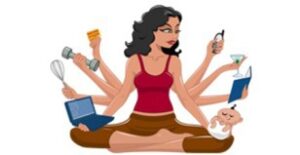
I'm not telling my story to make my choices sound good. I am telling it to make a point. If you look behind closed doors, you realize that every situation is different. We cannot apply the same rule to everyone out there.
Being a mother to yourself
Yes, the decisions I have made seem selfish, but were they? They have kept me healthy, balanced and sane. They enabled me to function. Physical and psychological well-being are essential to being a yoga teacher and a mother. Or to anyone who wants to be at service.
I am aware that many people may disagree with me. However, these were the right decisions at that time. I may opt for a different path today. And yet for another one tomorrow.
As yoga teachers, we encourage our students to become inquisitive and observant in order to respond to what they need. And how many times do we speak about the kind of compassion that begins with yourself? “Don't push in your Asana practice, respect your limits, be gentle with yourself.” Yet when it comes to our own decisions, we have the impulse to follow the guidebook. We think that there are some golden rules that can't be bent.
What yoga teaches
About a decade ago, yoga changed my life completely with one simple tool: It has taught me to gaze inwards, make out what is there and react appropriately. When I was newly pregnant, I was still a vegetarian. But one night, I was craving fish. I didn't even know I was pregnant yet. But a voice inside was telling me I needed animal protein.

Any mindfulness practice, not just yoga, gives us the chance to pause, listen and be honest about what would be beneficial at that particular moment. Not what made sense three months ago. Not what we believed in when we were going through the rebellious phase. Only what is wholesome right here, right now.
For me the phrase “typical yoga teacher” implies that there is a right and a wrong way to do things. I might be biased, but it feels to me like we have to fit into that category in order to be a good yoga teacher. Or a loving mom, or a respectable human being. This also means that anything outside of that spectrum is not okay and not good enough.
And how is that compassionate? How is that typical for a yoga teacher?
© Copyrights 2022-2023 | Elisa Malinverni | All rights reserved | AGB| Kontakt & Newsletter
© Copyrights 2022-2023 | Elisa Malinverni | All rights reserved | AGB | Kontakt & Newsletter
© Copyrights 2022-2023 | Elisa Malinverni |
All rights reserved | AGB| Kontakt & Newsletter
© Copyrights 2022-2023 | Elisa Malinverni | All rights reserved | AGB | Kontakt & Newsletter
© Copyrights 2022-2023 | Elisa Malinverni
All rights reserved | AGB | Kontakt & Newsletter

